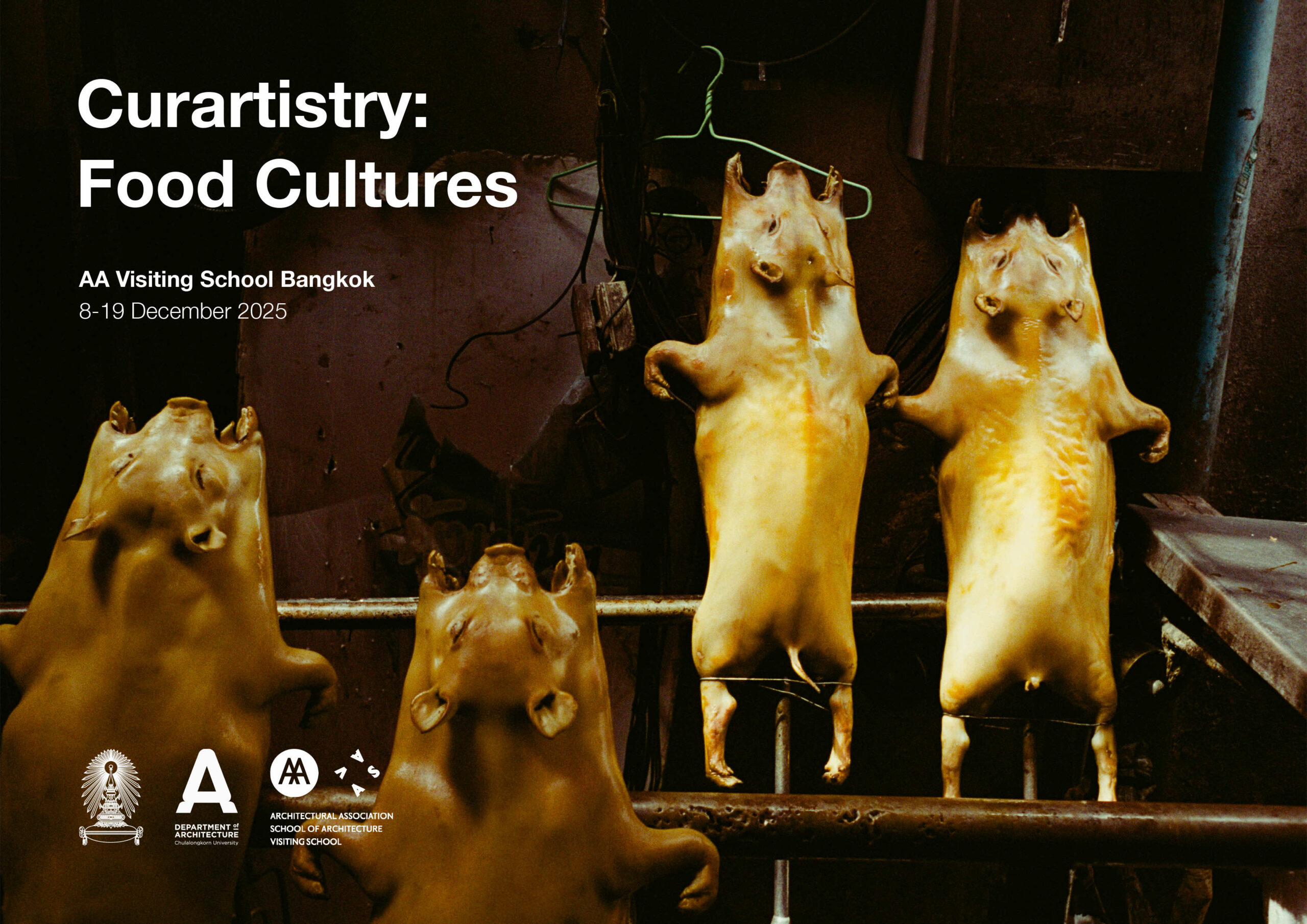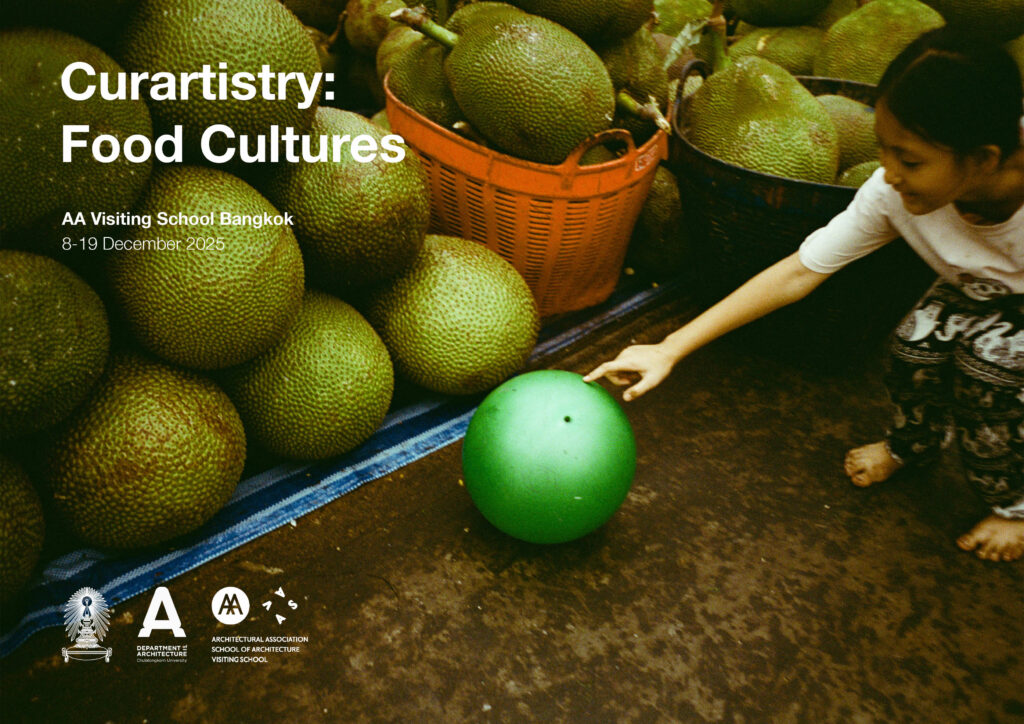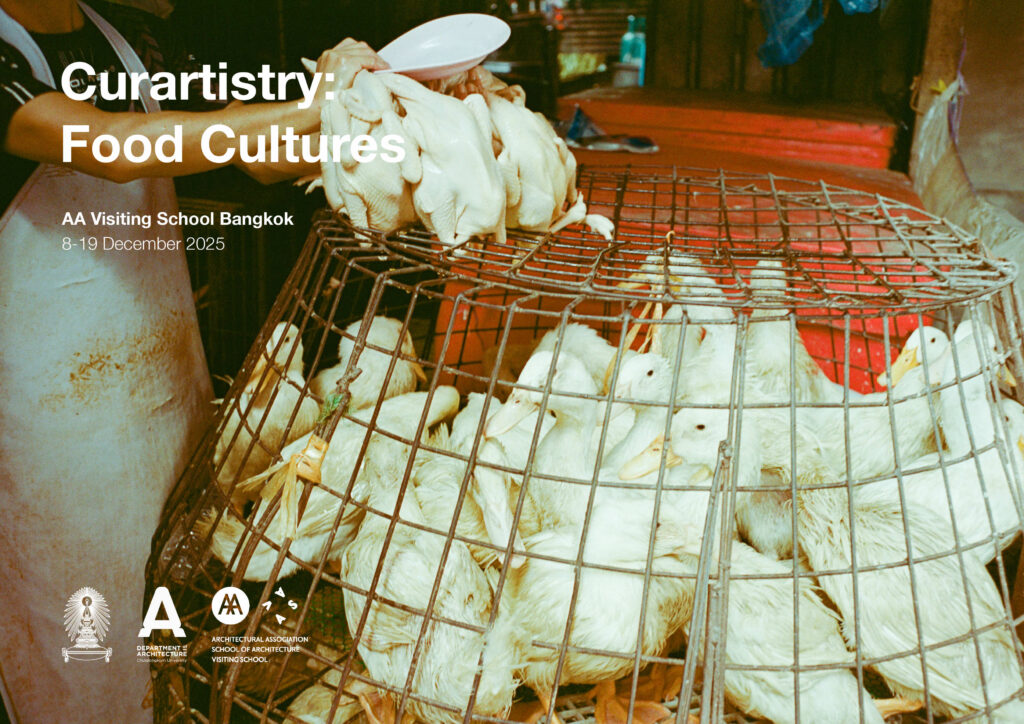AA Visiting School Bangkok 2025
“Curartistry: Food Cultures” 08-19 December 2025 This year’s workshop explores Food Cultures to reflect the varied ways food is produced, distributed, and consumed across geographies, classes, tastes, and identities. Through the lens of “curartistry,” we examine how everyday rituals around food reveal the unspoken artistry of Bangkok: a chaotic, improvisational city teeming with contradiction, beauty, […]

“Curartistry: Food Cultures”
08-19 December 2025
This year’s workshop explores Food Cultures to reflect the varied ways food is produced, distributed, and consumed across geographies, classes, tastes, and identities. Through the lens of “curartistry,” we examine how everyday rituals around food reveal the unspoken artistry of Bangkok: a chaotic, improvisational city teeming with contradiction, beauty, and memory.
“Curartistry” was coined by the late Mark Cousins, former Director of the AA Histories and Theories Programme. A philosopher and theorist of everyday aesthetics, Cousins recognized the unintentional acts of curation that transform the mundane into moments of meaning. In Bangkok, a city of kaleidoscopic improvisation, these moments appear not in galleries, but in alleyways, shopfronts, street stalls, and spirit altars.

Participants will journey through Bangkok’s layered foodscape across three strands:
Production & Processing: Mornings begin at Khlong Toei and Trok Mor markets, tracing the raw mechanics of food logistics to Simummuang Market and even a slaughterhouse. Bangkok chef and restauranteur Chalee Kader offers perspective on the collision between primal ingredients and haute cuisine.
Commerce: Students will decode the spatial choreography of markets and 7-Elevens, from Prachak Roasted Duck on Charoen Krung to Guay Jub Ouan Pochana in Chinatown and Sai Nam Phueng in Sukhumvit. Architects Donlaporn Chanachai and Nattapong Phattanakosai guide investigations into how food, identity, and design intersect—from street stalls to concept restaurants.

Auteurship: This strand looks at food as story, offering, and ritual. Students explore spirit offerings, food altars, and how chefs like Kader compose memory into meal. Inspired by historical figures like Carême, participants reflect on how food becomes image, symbol, and spatial gesture.
Throughout, students will hone skills in documentation, writing, and curation. Guided by photographer Rammy Narula, they’ll learn to capture the quiet drama of everyday life. The program culminates in a pop-up exhibition and art book, with proposed inclusion in Bangkok Design Week 2026.
Applications are open to students in architecture, design, art, or related fields. Study materials will be shared by November 24, 2025.
For more information, please click this link.
